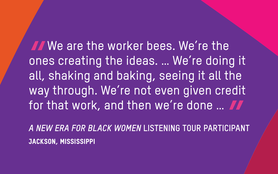We’re tracking a series of federal court decisions that threaten access to mifepristone—one of the pills that, for over 20 years, has been approved for use in medication abortion and miscarriage treatment. As a Texas case winds its way through the court system, access to mifepristone could be restricted, further compromising the fundamental right to make decisions about our reproductive lives and futures.
Suddenly, mifepristone is in the news, and under attack. What is it? It’s a safe, effective drug that has been used by over 5 million people since the US Food and Drug Administration (FDA) approved its use in 2000. Medical experts have found that medication abortion is safer than Tylenol. It is now the most widely used method of abortion in the US.
Court decisions restricting mifepristone access aren’t based in science—they’re based in radical anti-abortion politics. And they’re part of an effort to dismantle sexual and reproductive healthcare nationwide that was never going to end with the Dobbs case that overturned Roe v Wade in 2022.
How did we get to this point in the courts?
Mifepristone’s path through the courts is serpentine. First, a federal judge in Texas issued a radical and unprecedented decision siding with anti-abortion activists seeking to take mifepristone off the market nationwide. Hours later, a federal judge in Washington state ordered the FDA to preserve access to mifepristone in 17 states and Washington, DC.
The Biden administration appealed the Texas ruling to the Fifth Circuit Court of Appeals, asking it to restore mifepristone’s approval. Unfortunately, the Fifth Circuit only went part-way, leaving mifepristone access restricted (including requiring patients to see doctors in-person and restricting its use to 7 weeks of pregnancy) while it waits to decide the appeal.
The Biden administration asked the Supreme Court (SCOTUS) to step in, which could either restore access to mifepristone or bless these recent restrictions while the full appeal is heard. This is to say nothing about the direct conflict between the decisions in Washington and Texas, which SCOTUS will probably have to resolve sooner or later.
In short: the legal fight is far from over; in the meantime, the case’s twists and turns could harm real people, sow confusion and fear, and limit access to this life-saving medication.
Why it matters: Inequality
The right to safe, legal, accessible abortion is fundamentally about equality—of gender, race and class. What we are witnessing is the deepening inequalities in our healthcare structure; the impact will fall hardest on those already struggling to get by, access healthcare and protect their rights.
For example, the proposed restrictions (requiring a pregnant person to see a doctor in-person, limiting access to the first seven weeks of pregnancy—a timeframe within which many people do not yet know they are pregnant) are effectively exclusionary for countless people. This includes people without access to a doctor, people working multiple jobs to make ends meet, people with no access to paid leave (or with very limited access to free time to see their doctor), or people living in fear of gender-based violence.
To be clear, these issues are most significant for people who are already facing structural barriers to equity and healthcare. This includes BIPOC women, who are frequently working low-wage jobs without access to healthcare support; trans and gender-diverse people, who often face discrimination at the family, community, and structural levels of society; people with disabilities (visible or not), who often face barriers to adequate healthcare and discrimination from providers; and the poorest and least protected in our society, such as people who might hesitate to access mainstream healthcare systems for fear of their immigration status being discovered, or financial precarity becoming worse.
Moreover, restrictions on lifesaving healthcare such as abortion have wider ramifications for the fairness of the system itself. The judge’s decision was not objective, as it was not based in scientific fact or in legal precedent; according to Science, the judge relied on extreme rhetoric, noncredible sources, and tendentious reasoning that clearly favored the plaintiffs who have a strong ideological opposition to abortion.
But what is equally dangerous is that this judge’s decision “lowered the bar for efforts to overturn well-considered and justified determinations by the FDA.” This ruling begins the process of undermining public confidence in the FDA to make decisions about the safety and efficacy of drugs and other regulated consumer goods, including vaccines--and it certainly undermines public confidence in the judiciary’s ability to be fair and impartial.
What Oxfam is doing
At Oxfam, we have been fighting for the rights of women and for gender justice for years, and this case, with all its twists and turns, represents another battle. We continue to advocate for the right to legal, safe, and accessible abortion. Laws and policies restricting access to abortion services violate the human rights of people who can become pregnant and perpetuate gender-, race- and class-based inequality in the United States and globally.
Many people and organizations are courageously continuing this fight, tirelessly advocating for better protections for people who become pregnant. We are proud to stand behind our partners in this work.
Please visit our friends at Planned Parenthood for regular updates on the fight for equal and fair access to mifepristone. Our partners and allies in Georgia and Mississippi--including SisterSong, the Mississippi Black Women’s Roundtable, Mississippi in Action, and the Lighthouse--continue to lead the charge in advocating for reproductive justice, highlighting the systemic inequities that persist, particularly for BIPOC women in the South.



